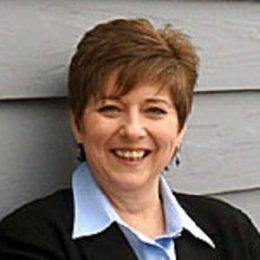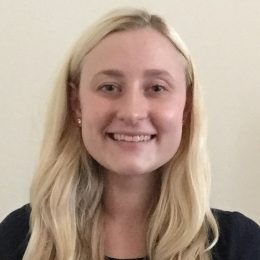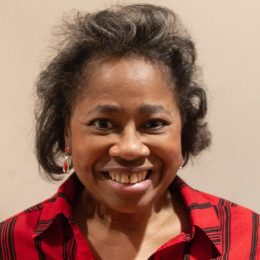Amanda L. Reddy

Amanda Reddy is the Executive Director of the National Center for Healthy Housing, an organization founded on the premise that better housing can be a powerful platform for better health. Amanda describes her path into the field of environmental health by saying that she took a job and found a calling. Over the last 15 years, she has answered that call by working with communities to effectively prevent housing-related illness and injury by implementing evidence-based and equitable policies that improve housing quality. Prior to joining the National Center for Healthy Housing, Amanda was a research scientist with the New York State Department of Health, where she supported a range of programs focused on improving indoor and outdoor air quality in homes, schools, workplaces, and outdoor settings. Amanda has served as a national leader in securing sustainable financing for healthy homes services and developed a talent for making topics like healthcare financing, code enforcement, and economic evaluation engaging. She holds degrees in environmental health from the London School of Hygiene and Tropical Medicine and neuroscience from Mount Holyoke College.
Christopher Bloom

Christopher Bloom, Communications and Marketing Manager, joined NCHH in January 2008. Previously, as a project coordinator, he managed the daily operations of NCHH’s national lead safety training program, active in 38 states from 2009 to 2013, which certified over 27,000 renovators in EPA’s Renovation, Repair, and Painting (RRP) rule. His attention to detail and his rapport with both instructors and contractors helped it to become one of the most successful RRP training programs in the nation. Before joining NCHH, he sold new custom single-family homes and townhouses. Mr. Bloom holds a Bachelor of Arts degree in English textual studies from Syracuse University.
Ejuhavna Chisolm

Ejuhavna Chisolm, Junior Analyst, began her career with NCHH as an intern in 2023 and officially joined the staff in early 2024. Her dedication to improving the lives of vulnerable populations is a driving force behind her academic and professional pursuits. Beyond her career, familial, and academic commitments, Ejuhavna plays an active role in two nonprofit organizations, both dedicated to alleviating the pressing issue of food insecurity. Ejuhavna earned her Master of Public Health degree with a focused concentration in health promotion, education, and behavior from the University of West Florida.
Jadiyah Davis

Jadiyah Angelee Davis, Junior Analyst, is from Chicago, Illinois, and has supported several projects dedicated to helping people understand the meaning of “healthy housing.” A few of those projects include gathering emergency preparedness and recovery techniques for natural disasters, engaging in outreach for the promotion of healthy housing item loaning, and creating a video to publicize healthy home practices. She holds a Bachelor of Science degree in applied health science from Indiana University Bloomington, and her passion lies in developing communities in every aspect of their health through research and education.
Sherry Dixon

Dr. Sherry Dixon is a biostatistician with more than 25 years of experience with the analysis of housing, environmental, health, and biological research data. She has played a key role in the statistical analysis for all of the National Center for Healthy Housing’s research and evaluation projects, encompassing lead hazard control, weatherization, green and healthy homes, asthma, and allergens. Dr. Dixon earned her MS in biostatistics and her PhD in statistics from Western Michigan University.
Laura Fudala

Laura Fudala joined NCHH in January 2014 as a project coordinator to provide a wide variety of coordination, research, writing, and support functions on multiple NCHH projects. She currently provides or has provided project management, coaching, programmatic, and data evaluation support for multiple NCHH responsive TA efforts including National Lead Poisoning Prevention Network: Equipping Communities for Action, Health in All Policies and Childhood Lead Poisoning Prevention, the New York State Childhood Lead Poisoning Primary Prevention Program (CLPPPP), the Lead Legal Strategies Partnership, Building Systems to Sustain Home-Based Asthma Services, and Building Systems to Improve Indoor Air Quality. Previously, Ms. Fudala worked as an international program associate for the Alliance to End Childhood Lead Poisoning and a project scientist for Island Environmental, Inc. Ms. Fudala holds a Bachelor of Environmental Studies from Allegheny College.
Sarah Goodwin

Sarah Goodwin, Policy and Advocacy Manager, joined NCHH in June 2017. She currently manages NCHH’s federal policy and advocacy work, coordinates the National Safe and Healthy Housing Coalition, and helps support local communities and partners as they act to strengthen programs and policies. She previously served NCHH as a policy intern for a year, where she helped to establish and run Find It, Fix It, Fund It: A Lead Elimination Action Drive and all of its workgroups. She holds a Bachelor of Arts degree in Interdisciplinary Studies: Communications, Legal Institutions, Economics, and Government from American University.
Michelle Harvey

Michelle Harvey, Chief Operating Officer, joined NCHH in December 2008. She oversees human resources, communications, operations, and IT management. An accomplished professional with nearly 25 years of experience in operations, human resource development, and employee relations, Ms. Harvey’s duties include partnering with members of senior management to guide corporate business objectives, workforce planning, and communications across the organization. Her strengths include innovation, leadership, change management, organizational development, and capacity building. Prior to joining NCHH, Ms. Harvey worked with Community Preservation and Development Corporation in the capacity of Operations Manager, where she played a leading role in managing both materials and personnel, in addition to human resources tasks such as managing payroll and hiring employees. Ms. Harvey graduated from Prince George’s Community College in Largo, MD, with an Associate degree in business administration.
.
Kate Belmont Hastings

Kate Belmont Hastings, MA, Senior Technical Advisor, is a thought leader at the intersection of environmental health, housing, healthcare, and health equity and is a trusted partner to government agencies and stakeholders across sectors. Kate helps communities focus their in-home investments in healthcare and community services to address disproportionate disease burden, poor housing quality, environmental exposures and high energy costs to redress the determinants of health with solutions that bring climate and equity benefits, healthcare value, and healthier indoor environments. Ms. Hastings holds an ABD and an MA in political science from the University of Notre Dame and graduated magna cum laude from Bowdoin College with a BA in government and legal studies
David E. Jacobs

Dr. David Jacobs is the Chief Scientist at the National Center for Healthy Housing. He also serves as Director of the U.S. Collaborating Center for Research and Training on Housing Related Disease and Injury for the Pan American Health Organization/World Health Organization (PAHO WHO), an adjunct associate professor at the University of Illinois Chicago School of Public Health, and as a faculty associate at the Johns Hopkins Bloomberg School of Public Health. He is one of the nation’s foremost authorities on childhood lead poisoning prevention and was principal author of both the President’s Task Force Report on the subject in 2000 and the Healthy Homes Report to Congress in 1999. He has testified before Congress and other legislative bodies and has authored or coauthored many peer-reviewed publications. Dr. Jacobs is the former director of the Office of Lead Hazard Control and Healthy Homes at the U.S. Department of Housing and Urban Development, where he was responsible for program evaluations, grants, contracts, public education, enforcement, regulation, and policy related to lead and healthy homes. Dr. Jacobs also serves as a voting member of the ASHRAE 62.2 committee on residential indoor air quality and the Illinois Lead Poisoning Prevention Task Force as well as advising on healthy homes research in Australia and New Zealand. His current work includes research on asthma, international healthy housing guidelines, lead poisoning prevention, and green sustainable building design. Dr. Jacobs is a Certified Industrial Hygienist® and a licensed lead paint risk assessor, and he holds degrees in political science, environmental health, technology, and science policy as well as a doctorate in environmental engineering. In 2022, his book, Fifty Years of Peeling Away the Lead Paint Problem, was published by Elsevier Academic Press. For more than a decade, Dr. Jacobs has also served as volunteer board president of Lincoln Westmoreland Housing, a nonprofit that has provided affordable housing and social services for more than a hundred families in the District of Columbia.
Muhammad Malik
Muhammad Malik is a field researcher and data collector with NCHH.
Amy Murphy

Amy Murphy, MPH, has worked as part of the NCHH team since 2008, providing training and technical assistance to the New York State Department of Health Childhood Lead Poisoning Primary Prevention Program. Ms. Murphy has worked in the field of lead poisoning prevention and healthy homes for 25 years; for 15 years she provided leadership for the City of Milwaukee Health Department’s nationally recognized childhood lead poisoning prevention program. As a public health advisor with 30 years of experience, Ms. Murphy also works in the fields of maternal and child health, communicable diseases, and community health improvement. Ms. Murphy earned a Bachelor of Science in education from the University of Wisconsin-Milwaukee and a Master of Public Health from the University of Illinois at Chicago. She is certified by the Institute of Cultural Affairs (2014) as a ToP™ (Technology of Participation) facilitator and trainer of group facilitation processes.
Anna Plankey

Anna Plankey, Analyst, joined NCHH in January 2019. Initially serving as a policy intern, she aided in the coordination of the National Safe and Healthy Housing Coalition’s Hill Day in February 2019 in conjunction with the Lead Poisoning Prevention and Healthy Housing Conference in Washington, DC. She holds a Bachelor of Arts degree in History of Public Policy from University of California, Santa Barbara.
Charles Rominiyi
Charles Rominiyi is a field researcher and data collector with NCHH.
Darcy Scott

Darcy Scott, Senior Policy Advisor, has been engaged in federal advocacy efforts for over 15 years. After serving as the DC director of a women’s organization dedicated to influencing the direction of discretionary spending, she worked with a number of large-scale organizations, such as the ACLU and Susan G. Komen for the Cure, to influence legislators both in Washington, DC, and back in their home states through public engagement. Ms. Scott went on to run the government affairs department at M+R Strategic Services before becoming a sole proprietor, leveraging the power of organizations and coalitions to influence the legislative process. Clients have included the National Hospice and Palliative Care Organization, Habitat for Humanity International, United Way Worldwide, the Colombe Foundation, and the National Partnership for Women and Families. Ms. Scott has an undergraduate degree from Southern Methodist University and a graduate degree from Northwestern University. She sits on the advisory board of the Women’s Information Network, serves on the board of Peace PAC, and is on the Scoville Fellowship Board.
Gia L. Simms

Gia L. Simms joined NCHH in November 2023 as a bilingual (Spanish/English) field researcher and data collector. She works on the Climate and Healthy Housing Asthma Mitigation Project Study (CHHAMPS), principally in the areas of participant recruitment, data collection, and communications. She has worked formerly as a teacher of Spanish and ESL and a coordinator of international professional exchange programs. Ms. Simms holds an MA in international relations from Johns Hopkins University and an MAT in linguistics/TESOL from Georgetown University.
Ashely Williams

Ashely Williams, MPH, CHES, Public Health Analyst, joined the National Center for Healthy Housing in October 2022. A former summer policy intern with NCHH, she holds a Master of Public Health degree from Liberty University and a Bachelor of Arts in Sociology degree from the University of North Carolina at Chapel Hill. Ashely has a passion for helping others, particularly with improving their health and the health of their communities, schools, workplaces, and more; she does so by addressing social determinants of health, health equity, and disparities. Ashely earned her Certified Health Education Specialist (CHES) credential in 2023.
Ramona Williams

With a career spanning over 15 years in comprehensive administrative office support, Ramona Williams joined NCHH in September 2023 as an Executive Assistant. In her role, she partners closely with members of senior management to provide vital administrative support, ensuring the seamless operation of corporate activities. Ramona’s tenure as a Senior Administrative Assistant has been characterized by exceptional multitasking abilities and an unwavering attention to detail. She takes pride in her proven track record of successfully managing complex tasks and deadlines, earning accolades for her outstanding organizational skills and commitment to delivering high-quality administrative support. Throughout her career, Ramona has consistently contributed to increased efficiency, improved office processes, and enhanced productivity within the teams she has supported. Beyond her corporate role, Ramona is the proud founder of Tailored Assistant LLC, an esteemed Las Vegas-based establishment specializing in high-quality administrative office support. Drawing on her extensive experience, she offers a diverse range of services meticulously designed to alleviate office-related burdens for businesses.
Jonathan W. Wilson

Jonathan Wilson, Deputy Director, has served NCHH since 1993 as a program manager for research, technical assistance, and policy work. Mr. Wilson helped coordinate the Evaluation of the HUD Lead Hazard Control Grant Program, the largest and most comprehensive study of lead hazard control in housing ever undertaken in the United States. His current work includes assessment of the effects of energy efficiency and ventilation on resident health and methods to protect residents from radon exposure. Mr. Wilson has authored more than 30 peer-reviewed research manuscripts evaluating assessment tools and interventions for healthy housing hazards. He came to NCHH with a background in nonprofit housing development and a Master of Public Policy degree.
Dima Zahan
Dima Zahan is a field researcher and data collector with NCHH.